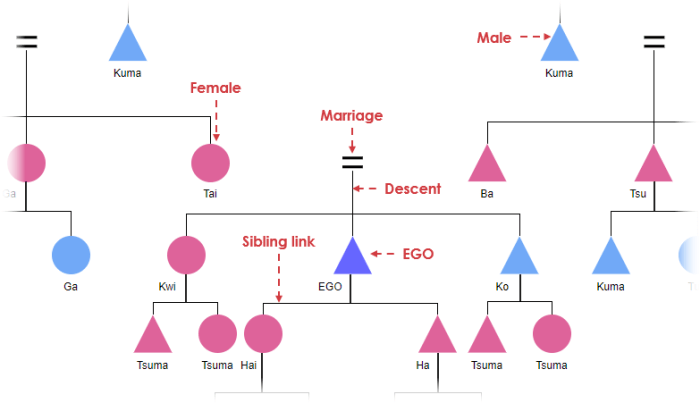Refusal to identify next-of-kin is a complex issue that presents healthcare professionals with ethical and legal dilemmas. This article delves into the implications of such refusals, exploring the impact on medical decision-making, end-of-life care, and the legal obligations of healthcare providers.
The ethical implications of refusal to identify next-of-kin arise from the duty of healthcare professionals to provide the best possible care for their patients. When a patient refuses to identify their next-of-kin, healthcare providers may face difficulties in making informed decisions about the patient’s care, particularly in situations where the patient is incapacitated or unable to make their own decisions.
Refusal to Identify Next-of-Kin: Ethical Implications

The refusal of patients to identify their next-of-kin presents healthcare professionals with a complex ethical dilemma. This refusal can have significant implications for medical decision-making, end-of-life care, and the legal obligations of healthcare providers.
In situations where a patient lacks decision-making capacity, the absence of a designated next-of-kin can create challenges in obtaining informed consent for medical procedures and end-of-life care. Healthcare professionals must balance the patient’s right to privacy and autonomy with the need to make appropriate medical decisions.
Potential Consequences
- Delayed or inappropriate medical care due to lack of informed consent
- Increased risk of medical errors or complications
- Difficulty in arranging end-of-life care in accordance with the patient’s wishes
Legal and Ethical Obligations
Healthcare providers have a legal and ethical obligation to provide appropriate medical care and respect patient autonomy. In cases where a patient refuses to identify their next-of-kin, healthcare professionals should:
- Document the patient’s refusal in the medical record
- Explore alternative methods of obtaining informed consent, such as through a legal guardian or healthcare proxy
- Consider consulting with an ethics committee or legal counsel for guidance
Legal Considerations and Patient Autonomy

The legal implications of a patient’s refusal to identify next-of-kin vary depending on the jurisdiction. In some jurisdictions, such as the United States, patients have the right to refuse to identify their next-of-kin, and healthcare providers are generally required to respect this decision.
However, in other jurisdictions, such as the United Kingdom, healthcare providers may be required to disclose the patient’s next-of-kin to the authorities if they believe that the patient is at risk of harm.
The concept of patient autonomy is central to the decision-making process regarding the disclosure of a patient’s next-of-kin. Patient autonomy refers to the right of patients to make decisions about their own medical care, including the right to refuse treatment.
In most jurisdictions, patients are considered to be competent to make decisions about their own medical care unless they are deemed to be mentally incompetent. If a patient is deemed to be mentally incompetent, a legal guardian or conservator may be appointed to make decisions on their behalf.
Legal Mechanisms Available to Healthcare Providers, Refusal to identify next-of-kin is a
When patients refuse to identify their next-of-kin, healthcare providers have a number of legal mechanisms available to them. These mechanisms include:
- Guardianship:A guardian is a person who is appointed by the court to make decisions on behalf of a person who is deemed to be mentally incompetent. Guardians can be appointed for a variety of reasons, including mental illness, intellectual disability, or physical incapacity.
- Conservatorship:A conservator is a person who is appointed by the court to manage the financial affairs of a person who is deemed to be unable to do so themselves. Conservators can be appointed for a variety of reasons, including mental illness, intellectual disability, or physical incapacity.
Communication Strategies for Healthcare Professionals
Effectively communicating with patients who refuse to identify next-of-kin requires healthcare professionals to employ sensitive and respectful strategies that prioritize the patient’s autonomy while ensuring their well-being. Building rapport, understanding cultural nuances, and using empathetic language are crucial in fostering trust and facilitating open dialogue.
Building Rapport and Gaining Trust
- Introduce yourself and explain your role in the patient’s care.
- Actively listen to the patient’s concerns and reasons for refusal.
- Avoid being judgmental or confrontational; instead, approach the situation with empathy and understanding.
- Respect the patient’s privacy and confidentiality.
Cultural Sensitivity
Cultural factors can significantly influence a patient’s decision to disclose next-of-kin information. Healthcare professionals must be aware of the cultural beliefs, values, and practices that may impact the patient’s decision-making.
- Inquire about the patient’s cultural background and beliefs.
- Seek assistance from a cultural liaison or interpreter if necessary.
- Be mindful of the patient’s communication style and nonverbal cues.
Understanding the Patient’s Perspective
Understanding the patient’s reasons for refusing to identify next-of-kin is essential for developing effective communication strategies. Healthcare professionals should:
- Explore the patient’s concerns about privacy, confidentiality, or past experiences.
- Explain the potential benefits of having a designated next-of-kin, such as decision-making support and continuity of care.
- Provide written materials or refer the patient to resources that can provide additional information and support.
Case Studies and Best Practices

Analyzing real-life scenarios can provide valuable insights into the ethical and practical considerations involved in managing patient refusal to identify next-of-kin. By examining the approaches taken by healthcare professionals and the outcomes of these cases, we can identify best practices that prioritize patient well-being and respect for their autonomy.
One common approach involves exploring the patient’s reasons for refusing to identify next-of-kin. This may reveal underlying concerns about privacy, family dynamics, or potential conflicts. By understanding the patient’s perspective, healthcare professionals can tailor their communication strategies and address their apprehensions.
Case Study
In a case study involving an elderly patient who refused to identify next-of-kin, the healthcare team discovered that the patient had experienced a traumatic relationship with their family. By respecting the patient’s wishes and exploring alternative options for communication and decision-making, the team was able to ensure the patient’s well-being without compromising their autonomy.
Best Practices
Best practices for managing patient refusal to identify next-of-kin include:
- Respecting the patient’s autonomy and decision-making capacity.
- Exploring the patient’s reasons for refusal and addressing any underlying concerns.
- Documenting the patient’s decision and the reasons provided.
- Identifying alternative methods of communication and decision-making, such as appointing a healthcare proxy or advocate.
- Ensuring that the patient’s wishes are followed, even if they differ from the healthcare team’s recommendations.
Recommendations for Policy and Practice
To address the issue of refusal to identify next-of-kin, healthcare policies and practices should be designed to respect patient autonomy while ensuring that the best interests of the patient are protected. Clear communication and decision-making processes are essential, and technology can play a role in facilitating these processes.
Communication Strategies
Healthcare professionals should engage in open and honest communication with patients about the importance of identifying next-of-kin. They should explain the benefits of having a designated person to make decisions on the patient’s behalf in the event of an emergency or incapacity.
- Develop clear and concise communication materials that explain the reasons for identifying next-of-kin.
- Provide opportunities for patients to ask questions and discuss their concerns.
- Respect the patient’s decision if they choose not to identify next-of-kin.
Decision-Making Processes
In cases where the patient refuses to identify next-of-kin, healthcare professionals should follow established decision-making processes that prioritize the patient’s best interests. This may involve consulting with a healthcare ethics committee or seeking legal guidance.
- Establish clear guidelines for decision-making when next-of-kin is not identified.
- Consider the patient’s wishes and values, as expressed in advance directives or through conversations with healthcare professionals.
- Consult with other healthcare professionals, such as social workers or psychologists, to gather additional information about the patient’s situation.
Role of Technology
Technology can be used to facilitate communication and decision-making when next-of-kin is not identified. For example, video conferencing can be used to connect healthcare professionals with patients and their families remotely.
- Explore the use of technology to facilitate communication between healthcare professionals, patients, and their families.
- Develop electronic health records that allow patients to designate next-of-kin and provide information about their wishes and values.
- Use technology to track and monitor communication with patients and their families.
FAQ Guide: Refusal To Identify Next-of-kin Is A
What are the ethical implications of refusal to identify next-of-kin?
Refusal to identify next-of-kin raises ethical concerns regarding the duty of healthcare professionals to provide the best possible care for their patients. It can hinder informed decision-making, especially when patients are incapacitated or unable to make their own decisions.
What legal considerations arise from refusal to identify next-of-kin?
The legal implications of refusal to identify next-of-kin vary depending on the jurisdiction. In some cases, healthcare providers may have a legal obligation to identify the patient’s next-of-kin, while in others, the patient’s right to privacy may take precedence.
What communication strategies can healthcare professionals use to address refusal to identify next-of-kin?
Healthcare professionals should employ effective communication strategies to address refusal to identify next-of-kin. This includes building rapport, gaining trust, and demonstrating cultural sensitivity.